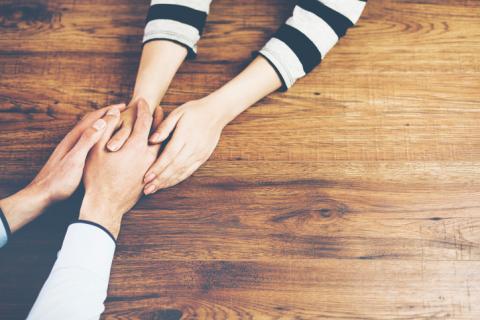Content warning: eating disorders, anorexia nervosa, obsessive compulsive disorder, anxiety
The global outbreak of the novel coronavirus has led to widespread fear, uncertainty, and upheaval of routines and systems. There have been critical effects on occupational, educational, and social functioning, in addition to the obvious health risk.
As a recent master of psychology graduate, I have also experienced interruption to my education. To gain full registration as a psychologist, I must complete a one-year (500 hours) unpaid internship. After securing a position and two supervisors, however, my internship remains in limbo.
The Australian Health Practitioner Regulation Agency must approve all internship positions and supervisors before an internship can begin. Now my application remains on a desk somewhere, along with hundreds of others. Simultaneously, psychological services are being moved to telephone and video conferencing sessions.
Our graduation was also cancelled, which was particularly devastating because of the circumstances in which I completed my master’s degree – I became critically unwell as a result of my anorexia nervosa in the final weeks of my course. During a work shift, I collapsed and lost consciousness, with severe heart dysrhythmia and life-threateningly altered electrolytes. I was immediately hospitalised and I finished my final essay and portfolio from the hospital ward.
Coronavirus: will I be able to complete my master’s and study in the UK?
Due to my hospitalisation, I missed the final celebrations with my peers. I comforted myself with the knowledge that I could attend my graduation ceremony in a few months’ time: a double celebration of making it to my 29th birthday.
I have survived severe enduring anorexia nervosa for 20 years and have known many medical scares including a compromised immune system, organ damage and failure and ongoing heart issues. These issues now increase my risk of contracting the coronavirus and spreading it further.
Eating disorders are a strange, alternate reality to live in. Social connections break down, anxiety is all-consuming. A need for structure and routine can be a significant part of survival, particularly with meal plans that may need to be strictly followed to prevent relapse and medical and emotional deterioration.
The availability of food products and medications is unpredictable and my anxiety and obsessive compulsions have been heightened by the constant messages of hygiene and risk. The sense that I must ration my food has made it easier for eating-disordered thoughts and impulses to take hold.
Before Covid-19, I was extremely socially isolated, and was working hard in therapy to counteract this. I am now more isolated than before, and therapy sessions have moved to the phone.
There is unexpected sunlight through the shadows, however. I have tried as much as I can to use the unpredictability of the pandemic to keep making progress. I have used the lack of availability of my “safe” foods to challenge myself to try to be more flexible. I have challenged myself to reach out to others online even more, and found support and supported others with mental health issues struggling amid the uncertainty.
I have finished research papers and actually submitted them: a huge win against my debilitating perfectionism. At the moment, good enough is good enough, and there is freedom in that. I am using this time to try and prioritise healing, and to focus on other aspects of my education – undertaking personal development courses online.
I hope that my graduation ceremony and internship are not lost. I want to hold on to hope that by the time the infection curve flattens and we can once again emerge safely from our homes, I will have reached a place of greater medical and emotional safety than I have known in 20 years.
Conversations and resources for staying mentally well have been widespread online and I find hope in seeing more awareness and conversations around mental health and managing distress.
If you have been affected by any of the topics in this blog then the following resources may help
- Beat
- National Eating Disorders Association
- National Initiative for Eating Disorders
- The Butterfly Foundation

Comments